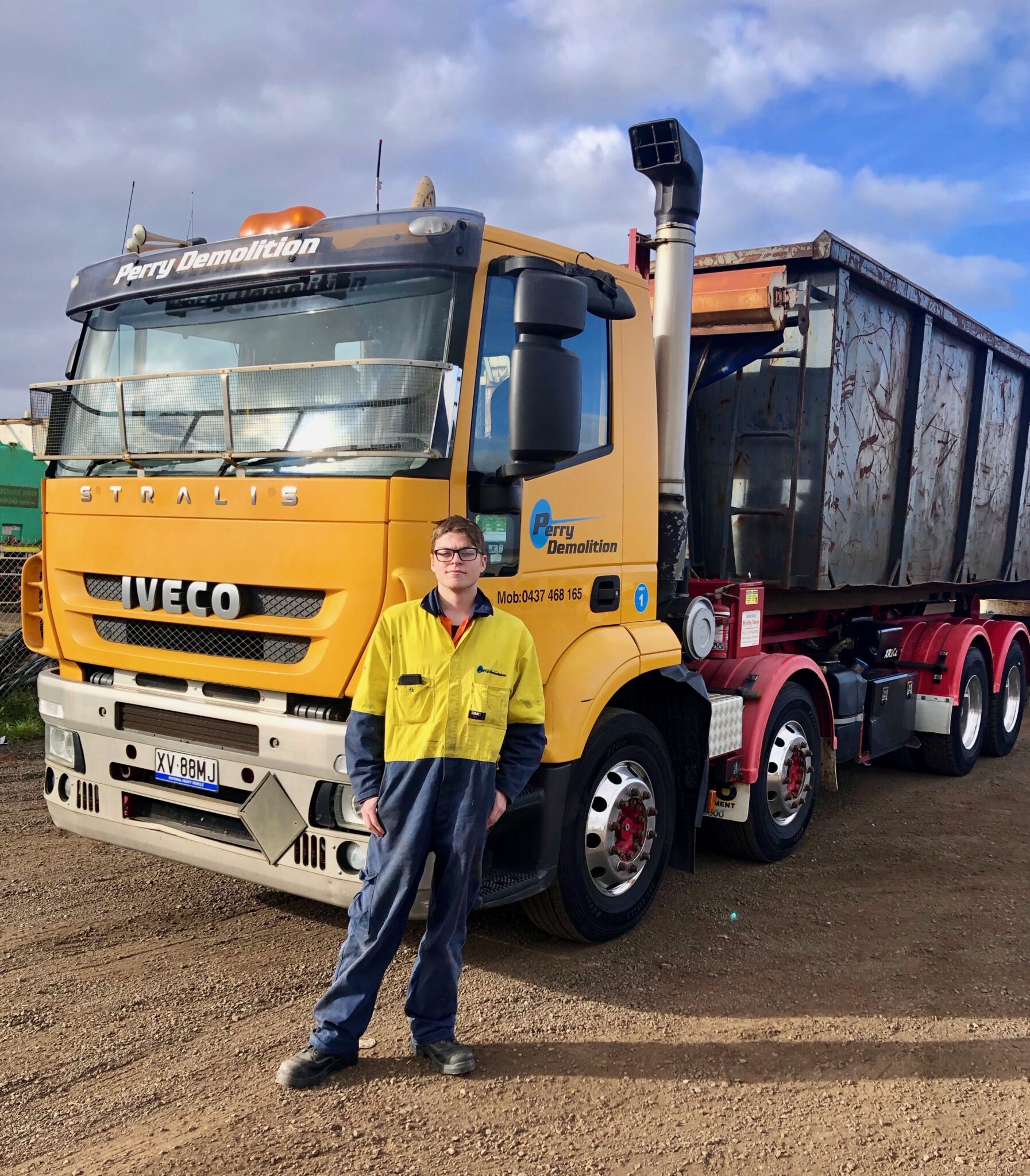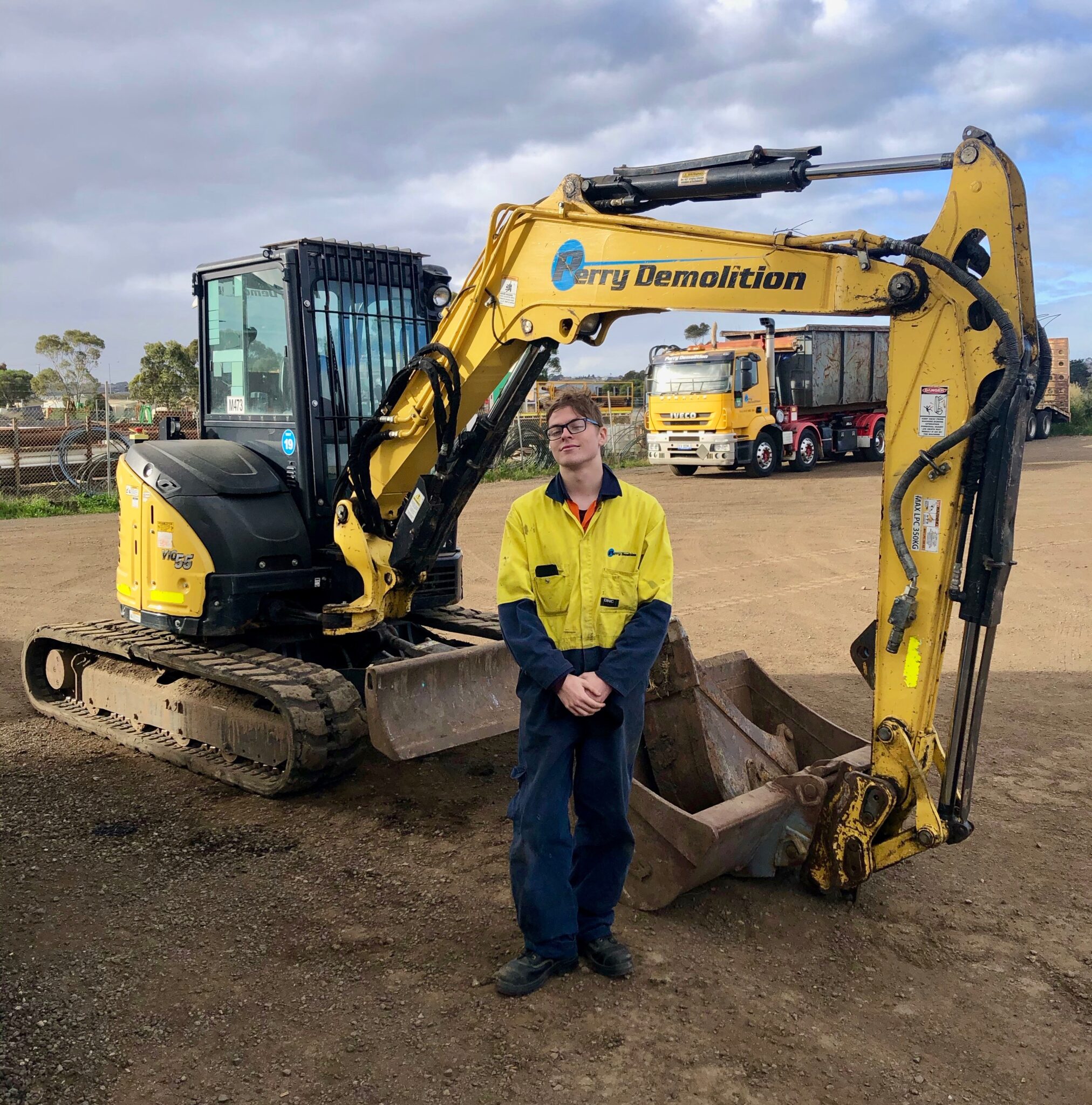
Tanya Andrews, Office Manager from Perry Demolition has provided this story about Being inclusive.
Please provide a brief background and some context
In March 2021 Tanya listened to Bryan Moore from Northern Futures present at the GROW Compact Action Network meeting about the great work they do training and supporting long term unemployed in North Geelong.
What steps did you make to make a change
‘We didn’t have a position at the time – I was just interested to hear more about what they do and find ways that our company could contribute in the future, so I reached out and we met.’
Bryan came out to our depot and explained in more detail their unique offering. Tanya was surprised to hear Bryan explain about ‘postcode bias’ – the unconscious (or conscious) perception or judgements that people (from other areas of Geelong) have about those living in Corio and Norlane.
‘I am shocked to know that this bias exists and that I may have been subjected to this bias in my life without ever knowing it! It’s like an invisible ‘discrimination’ unknowingly having people pass judgement based solely on location and a preconceived view. And to realise that this is even considered a ‘disadvantage’ was a real awakening to me. Living in the region I have witnessed real disadvantage, so it’s remarkable to me to hear this term ‘disadvantage’ being used over something as trivial as a location, when there are people in the region who endure extreme disadvantage, that is real and tangible. Unknowing that when they have the courage and strength to overcome these real disadvantages, they will then be subject to this unfair bias.’
Tanya thought it incredible that an entire organisation had been created to counteract this bias ie help those living in 3214. Without ever knowing it even existed.
‘I’ve been lucky enough to always have employment and that meant my experience superseded the limitation of this postcode bias. But not everyone has had the opportunities I have had.’
What was different after the change
A lot of our staff are from Corio and Norlane and other staff have grown up in this area; we’ve been very happy with their employment and have never had pre-conceived judgements about applicants from 3214.
Perry Demolition joined GROW specifically for the opportunity to make a difference in the community, so we decided to create a part time role and provide an opportunity for someone experiencing barriers to employment. We talked about duties that needed doing that were not necessarily getting done after speaking with our Director Bryce Perry about creating a role and our mechanic (who grew up in Norlane) who was excited to take on the challenge of mentoring and training. Together we ‘carved off’ several tasks turning them into a yard / factory hand role. Bryan then organised interviews a week later.
What was the outcome
Jack started one day a fortnight in mid-May and quickly moved to undertaking 2 days per week. He is completing his Cert II in Civil Construction at Northern Futures and is mentored here by one of our staff. Northern Futures support him and monitor his progress and support us as his new employer. Their service is holistic and thorough.
‘Jack was surprised to be offered the job and is happy to be working and learning new skills; he’s already part of our team and is a perfect fit for our needs. I would urge other businesses to look at ‘job carving’ and ensure they are remaining open-minded about applicants. Being able to provide an opportunity for Jack was great, what we didn’t expect was the overall boost and enthusiasm to all the other staff as they watch him gain more confidence within himself and the role.’


Info from GROW
What is unconscious bias?
Unconscious bias is unconscious or hidden beliefs – attitudes and biases beyond our regular perceptions of ourselves and others.
Unconscious bias affects every area of our lives. Unconsciously, we tend to like people who look like us, think like us and come from backgrounds similar to ours. Everyone likes to think he or she is open-minded and objective, but research has shown that the beliefs and values gained from family, culture and a lifetime of experiences heavily influence how we view and evaluate both others and ourselves.
These thought patterns, assumptions and interpretations – or biases – we have built up over time help us to process information quickly and efficiently.
From a survival standpoint, bias is a positive and necessary trait. In business, however, bias can be costly. It can cause us to make decisions that are not objective and ultimately we can miss opportunities.
Unconscious bias has a significant effect on our everyday decision-making abilities in the workplace. These biases affect all business decisions including our interactions with clients and customers.
This means there is substantial value to be unlocked in a more conscious approach to decision making – by addressing unconscious bias and improving the quality of all decisions, we can affect greater improvement on organisational outcomes.
A more conscious approach to decision making also ensures that the characteristics of a person – including whether the person lives in a particular postcode – are seen as dimensions rather than deficits, enabling businesses to be more inclusive and harness a much wider diversity of thinking within their workplace.
